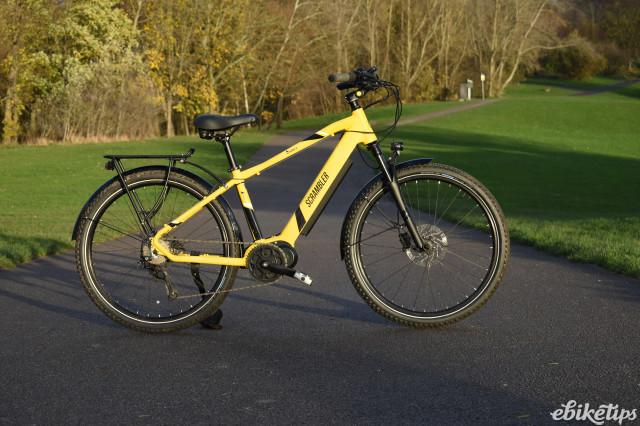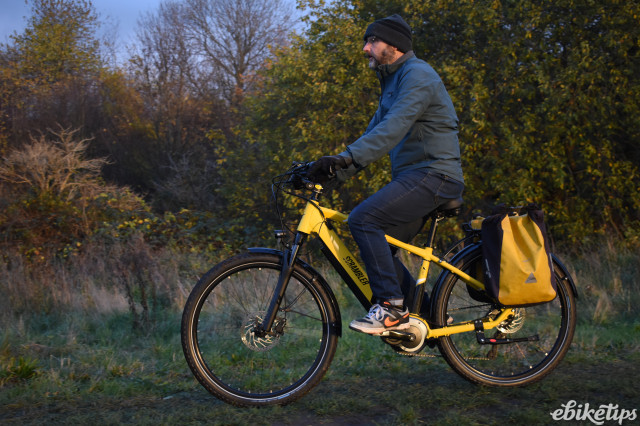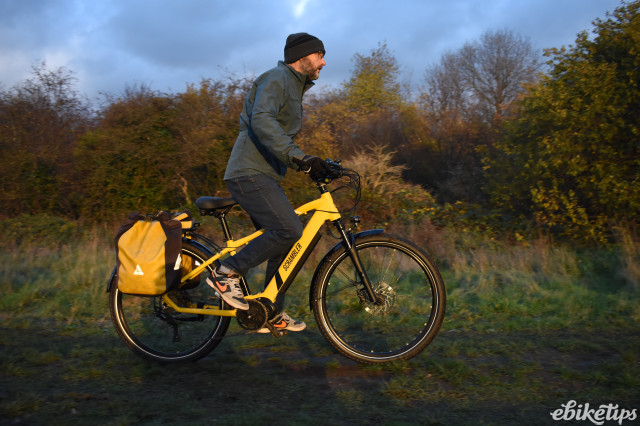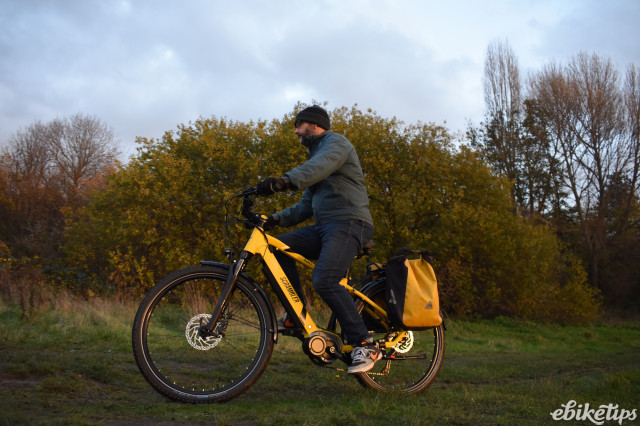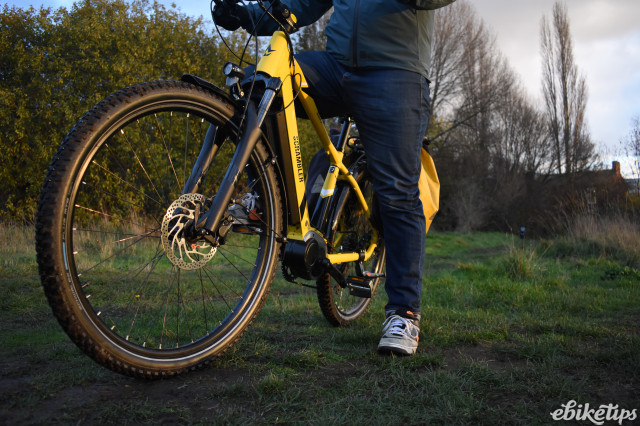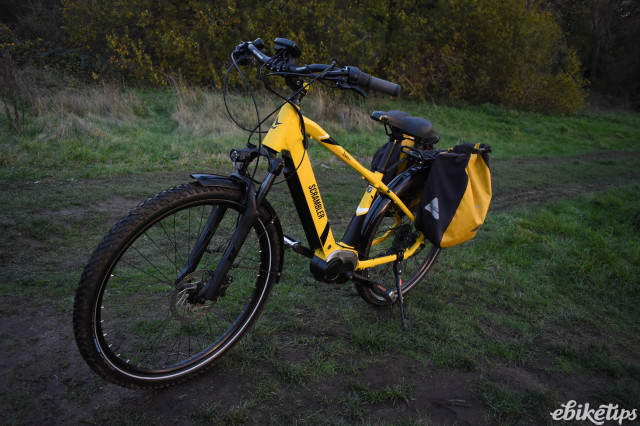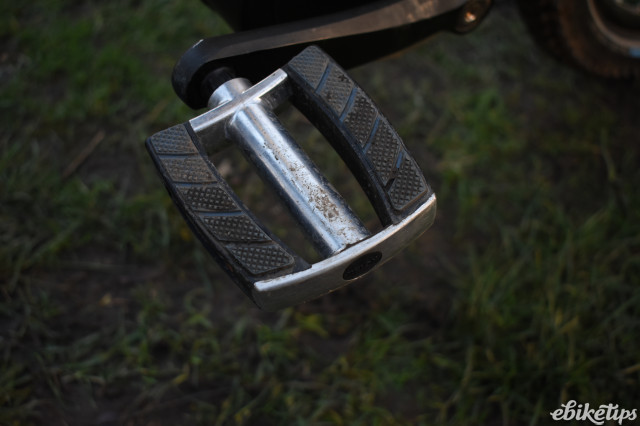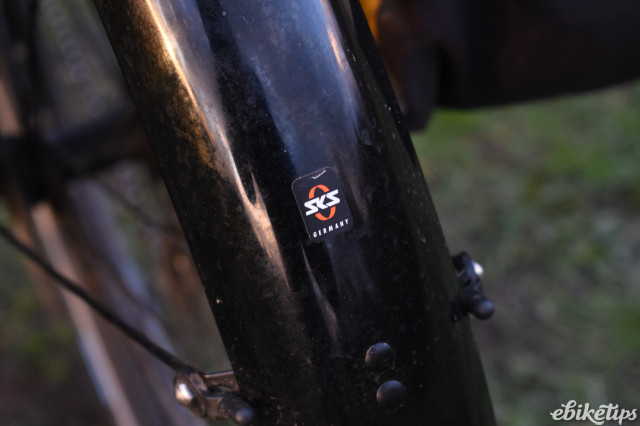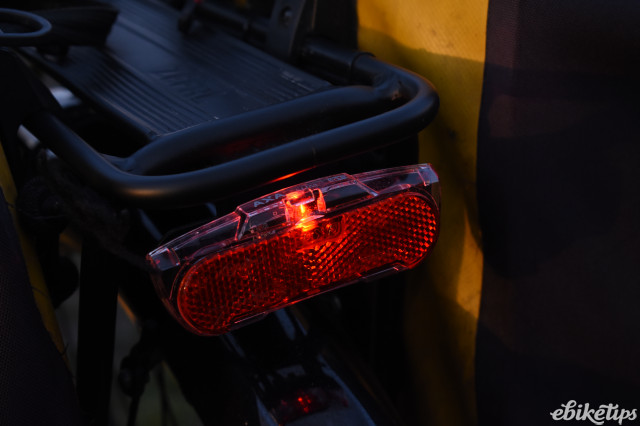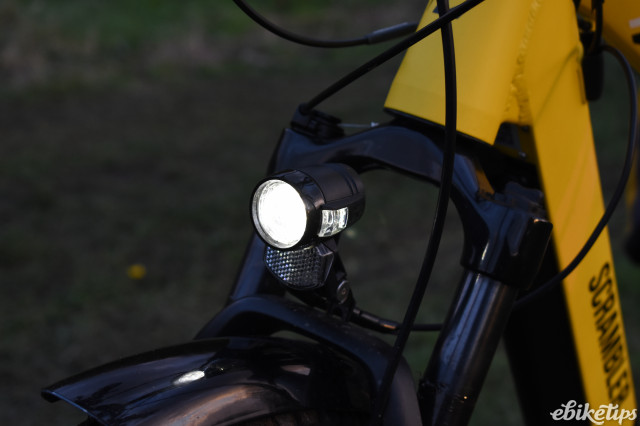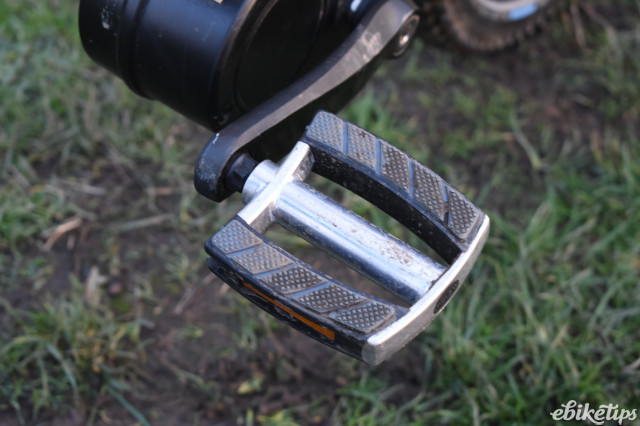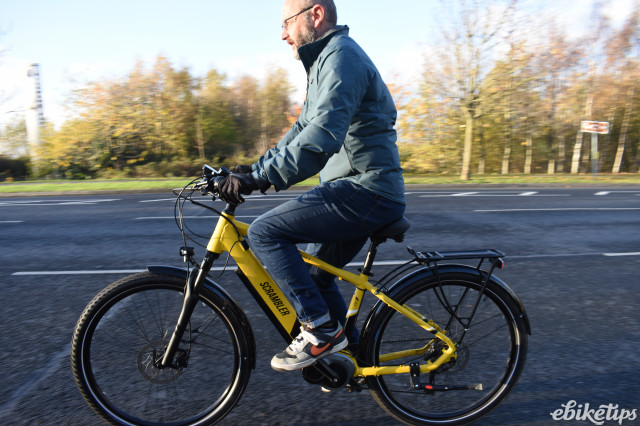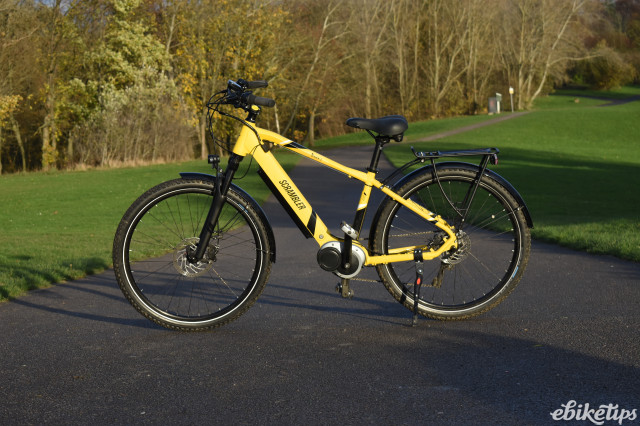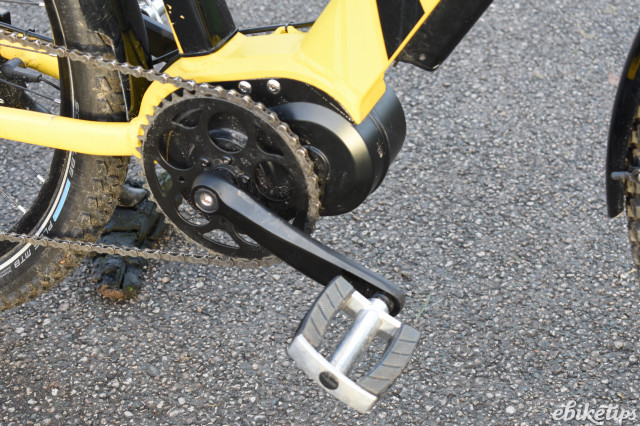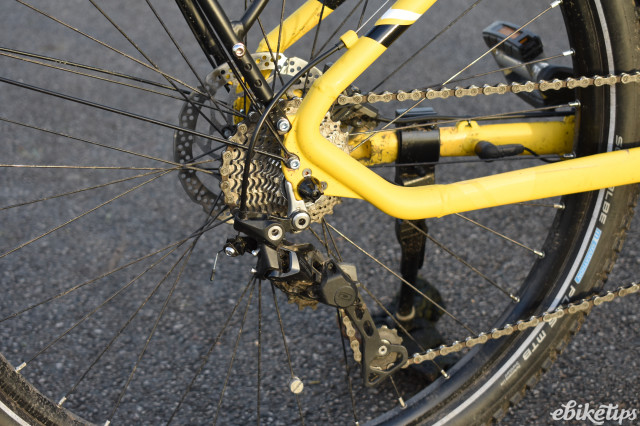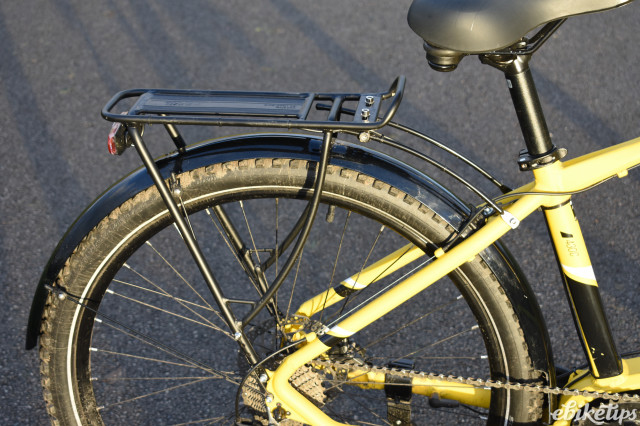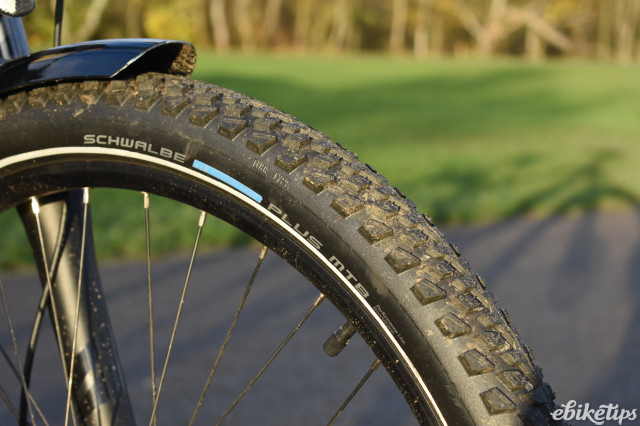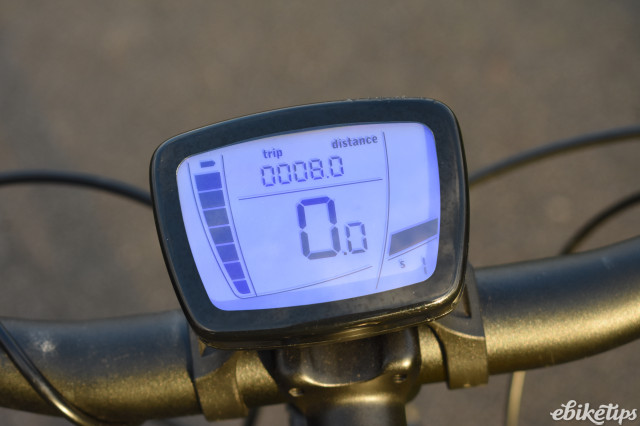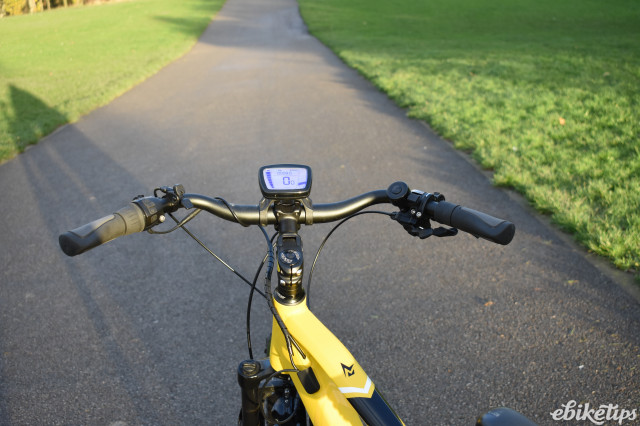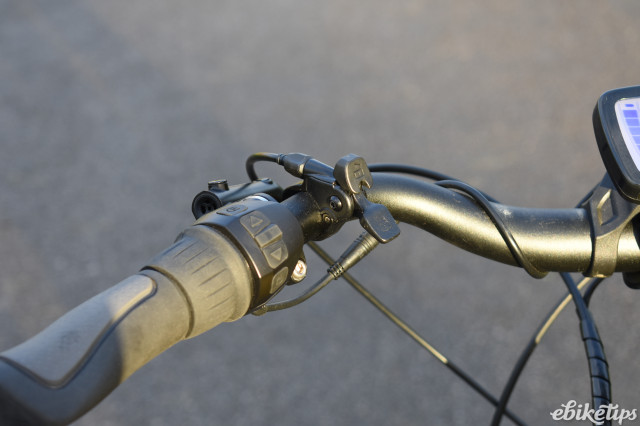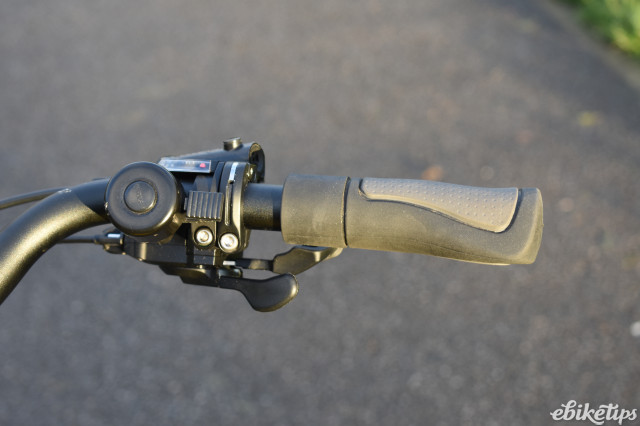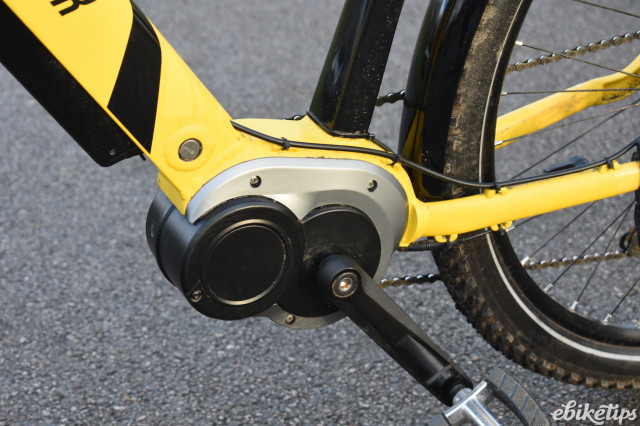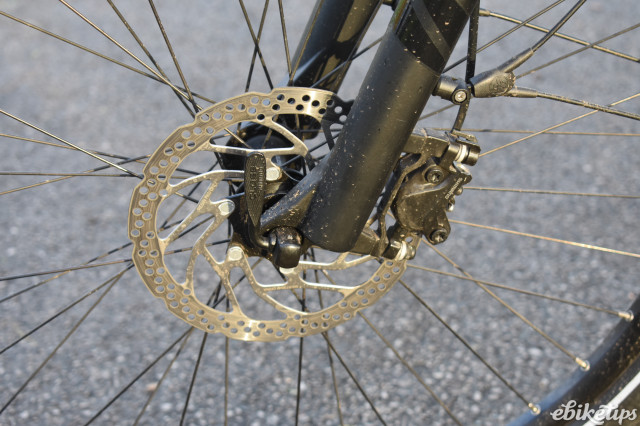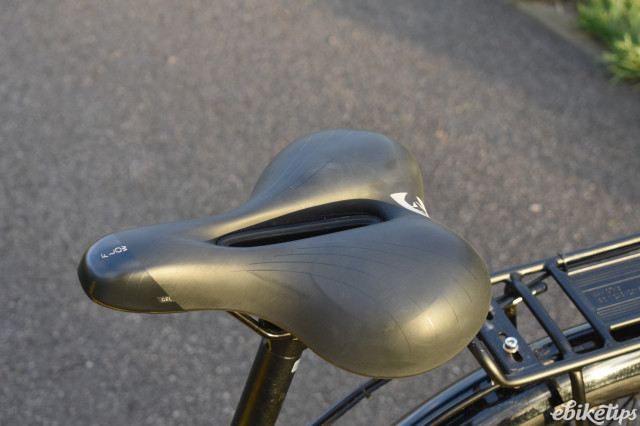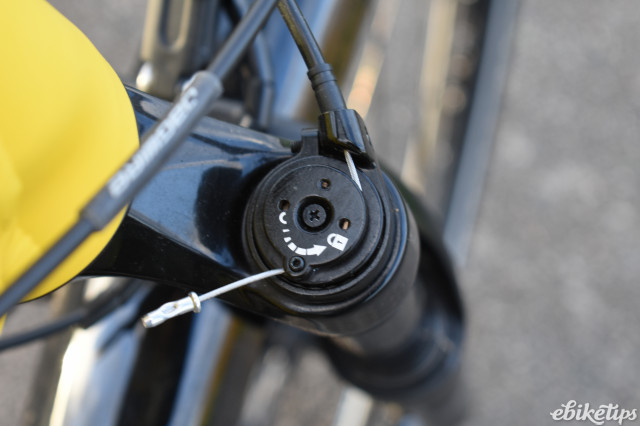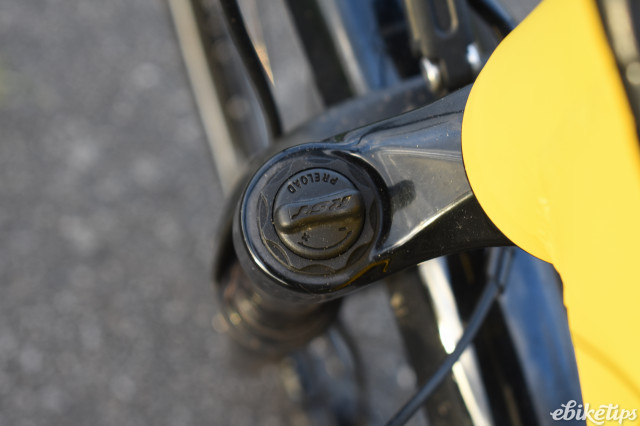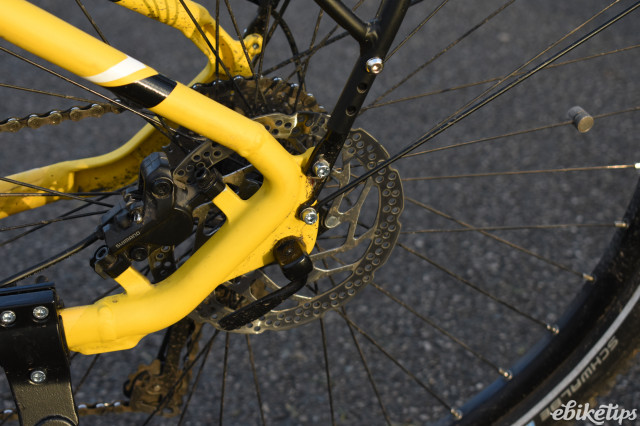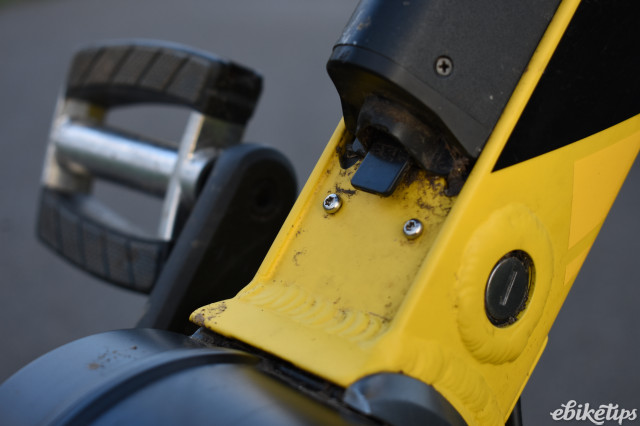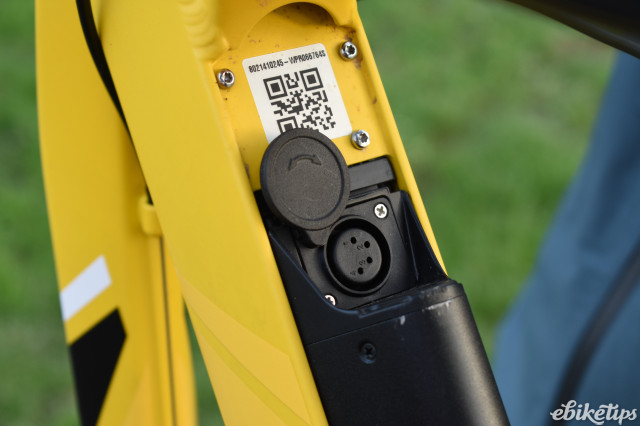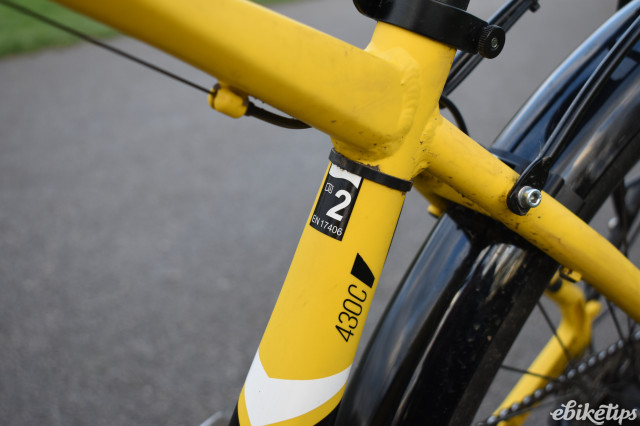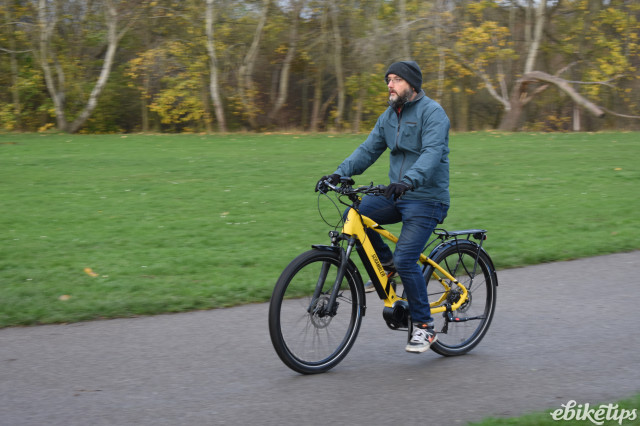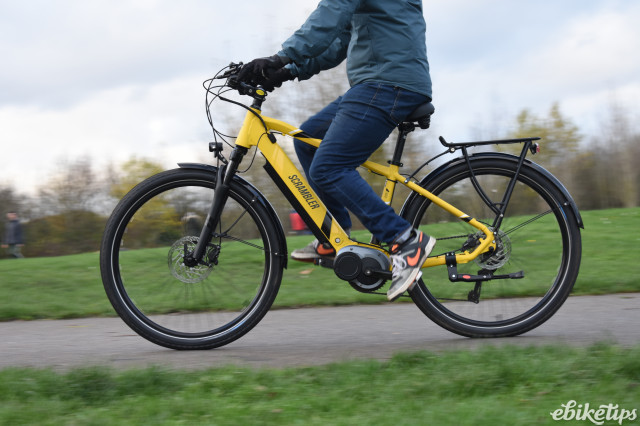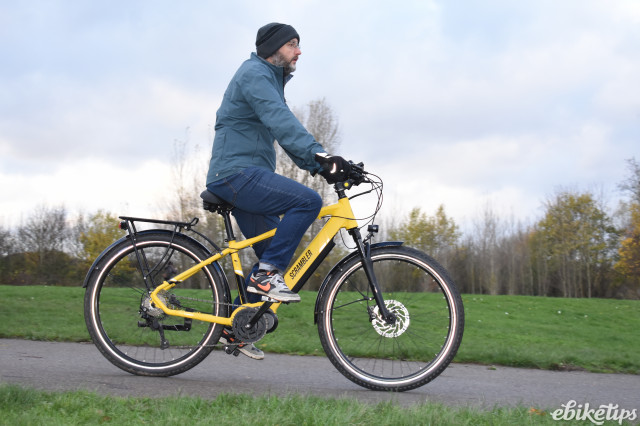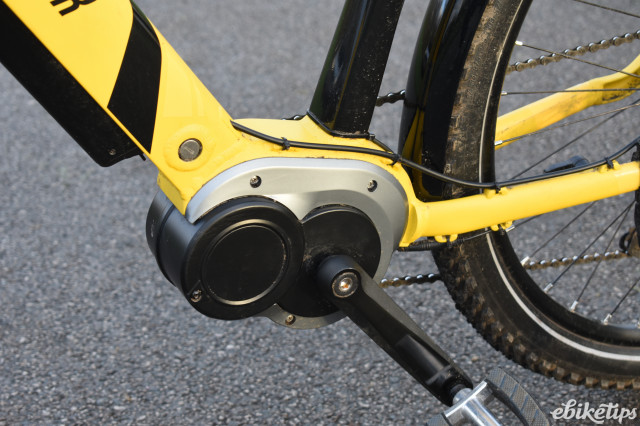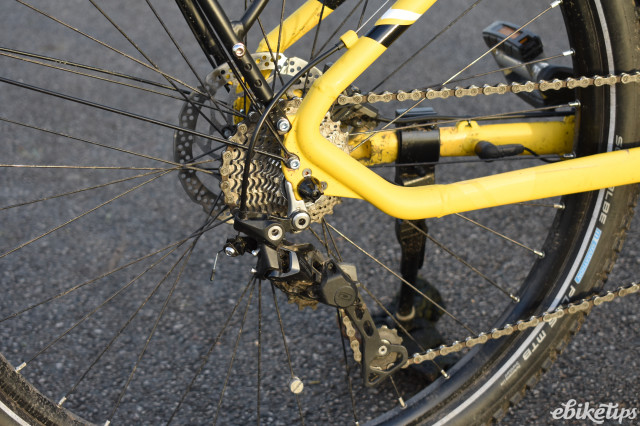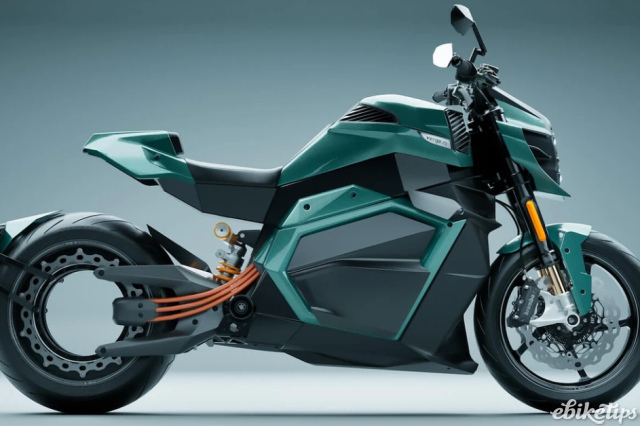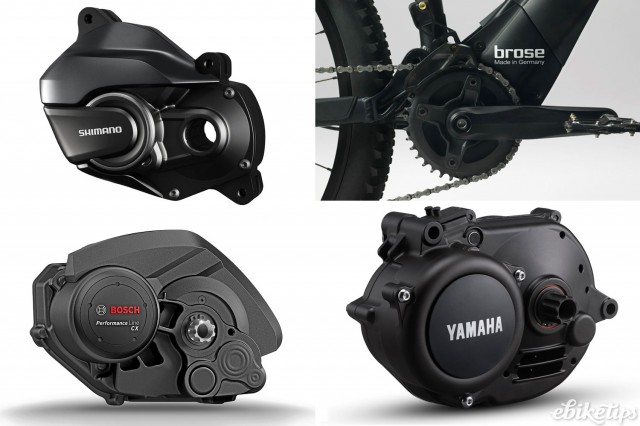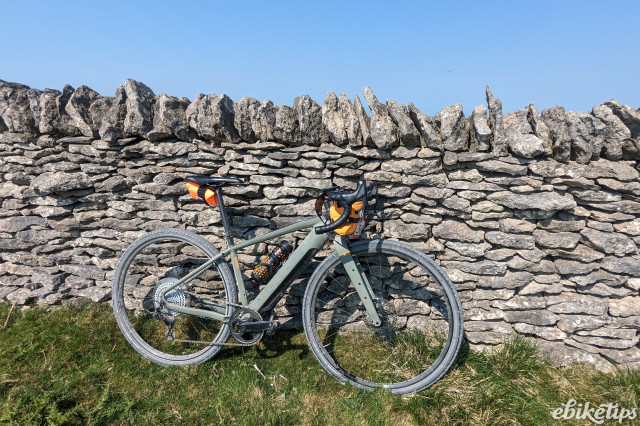Mark 2 Scrambler CX
Overview
- Efficient use of power
- Comfortable, safe-feeling ride on and off road
- Fully equipped
- A little pricey compared to the competition
- Motor doesn't feel like it delivers 90Nm torque as promised
Mark 2 describe their Scrambler 430CX trekking edition model as a 'hybrid off-road and leisurely riding trekking e-bike', which pretty much summed up our experience of it too.
Mark 2 say the bike is manufactured in Europe but is shipped from their UK warehouse and it's clear from both their website and from conversations ebiketips have had with them that this is no faceless company, but one that is ready to respond to comments from riders and provide a genuinely personal backup service, all of which is refreshing to see. With many e-bike websites selling directly to the public, it's often not possible to get any clear idea of who - or indeed sometimes where - they actually are. Not so with Mark 2...
The spec
The mid-motor is a sizeable looking unit from Danish firm Promovec, and it was a first for the test rider as the heavy mid-drive market is still dominated by the 'big four' (Bosch, Brose, Shimano and Yamaha) with the occasional appearance by Bafang on lower-priced models.
Aside of the relatively unusual motor, the highly visible alloy frame also stands out (bright yellow frames are a great safety feature in themselves - there is a black option too). It comes in a single 17" size, which was about right for the 5'8" test rider. The Scrambler CX is described as a trekking model, which seems fair given it features an RST Blaze RL steel sprung front suspension fork with preload adjuster, 100mm travel and remote lock out, and 27.5" x 2.25" Schwalbe Marathon Plus MTB tyres with SmartGuard. (That's about the most puncture protection you can get on a tyre.)
The test bike featured a 375Wh Promovec branded battery with Sanyo cells, but at the time of writing Mark 2 were offering a 460wh upgrade free of charge. It locks into the underside of the downtube with a key lock and removes for charging. We found it somewhat of a struggle to remove due to the tight fit, and, despite clear online videos from Mark 2 showing you how to do it, eventually gave up and charged it on the bike.
(Note following this review being published, Mark 2 reduced the price for the 375Wh option considerably to £2499, with the 460Wh battery option costing £2699. Whilst this is obviously better value we feel it's still slightly high in comparison to the competition).
There's a Shimano Deore 10-speed cassette fitted with a 12-28 tooth sprocket which can be altered by Mark 2 on request to provide a wider range and lower gearing by fitting an 11-32 cassette - highly advisable if you live anywhere at all hilly. Braking is more than adequately provided by Shimano hydraulic discs with 180mm front and 160mm rear rotors.
Despite the racy off-road name, the Scrambler CX is designed for comfort and practicality. There's a broad, nicely padded seat and an angle-adjustable handlebar stem that should let most riders get just the riding position they want. Practicality is provided by a Zefal Raider 6061 aluminium rear rack (with a highly impressive 27kg load rating), front and rear hardwired AXA LED lights, a kickstand and full length SKS mudguards made of tough plastic. Also user-friendly is the large centrally placed backlit LCD display showing battery level, speed and trip / total distance. A nice feature is that it dims when the lights are on so as to avoid screen glare at night. There's also a twist grip throttle which only works when the pedals are turning. This is useful if you tend to leave the bike in the lower power levels and occasionally need a quick boost.
At 26.7kg, it's certainly no lightweight, but about par for the course for such a fully equipped e-bike designed for robust practicality rather than weight saving. The Cube Kathmandu Hybrid Exc 625 we reviewed back in 2020 came in at around 28kg (with a much bigger battery) whilst the Neomouv Adonis came in at 27kg with a middling size 500Wh battery.
The upside of the extra weight is of course that the full equipment means you can ride in all conditions and carry a decent amount with you. The Scrambler CX has a maximum carrying rating of 120kg (18st 12lb) - that's rider and cargo.
Performance
Initial impressions are of a smooth and quiet torque sensing system that pushes you along nicely on the flat and up moderate hills. Steeper hills, including our 0.75 mile hill climb test certainly showed it to be some way off the pace of top end motors like the Bosch Performance Line and its even livelier CX variant.
Still, it made it comfortably to the top, although it made much slower progress up our ultra-steep hill climb, requiring significantly more human input. It you live in a very hilly area, more powerful top end motors from Bosch, Shimano or the like might be a better choice.
Range was pretty good, suggesting it's quite an efficient system, which you would expect given it's lack of raw power. The test rider managed 36 miles from the 375Wh battery - almost 10Wh per mile is certainly efficient, especially given the hilly testing ground of the Pennines' Calder Valley.
Where the Scrambler really excels is with its comfortable and safe handling, even with fully loaded panniers up to the max 27kg limit, and also in the ergonomic layout of the bar controls and display - power, lighting and throttle are all just a thumb push away and the screen display is easily visible, even for oldies with less than perfect eyesight. In fact the test rider's septuagenarian brother often borrowed it for around town tasks as he loved its ease of use. The option of the swept-back riser bars in particular were a big hit for their upright riding position.
The Scrambler CX performed pretty well on moderately hilly trails, though the lack of low speed torque and really soft front suspension (the test rider found the spring rather harsh) would preclude hardcore off-road riding - but that's clearly not its design brief. The tyres provided excellent traction whilst cornering quickly both on and off-road, on the mix of canal towpaths and well-made bridleways it was tested on.
Value for money and conclusion
The Scrambler CX comes in a shade under £3,000 (though note Mark 2 say visitors to the website will also get a £100 discount). Even at £2,900 we think that's overpriced when compared to the competition. There are quite a number of crank drive models out there that feature mid-drives from the big names that undercut the CX by several hundred pounds.
(Note following this review being published, Mark 2 reduced the price for the 375Wh option considerably to £2499, with the 460Wh battery option costing £2699. Whilst this is obviously better value we feel it's still slightly high in comparison to the competition).
Granted most of the competing big name crank drive models - for example Canyon's PRECEDE ON 5 at £2,499 - use the Bosch Active Line Plus motor, which claims a lot less torque than the Promovec's nominal 90Nm. The trouble is the Scrambler doesn't perform like the most powerful mid-drives out there, as we have noted, and is more akin to something like the Active Line Plus.
The bike itself performed really well and would make a great commuter as it's fully equipped and has an efficient mid-drive that should easily get you up most hills without any drama - just don't expect the raw power and speed you'll find on the top end drives from other motor manufacturers.
Overall there is a lot to like about this e-bike. Whilst it's marketed as a trekking e-bike, and its spec clearly says it is one, it reminded the test rider of the extremely solid and safe feeling Specialized Turbo Como he tested - despite being a very different spec. It's very likeable for its ease of use around town, away from the steepest gradients. It also comes with a three-year guarantee that covers the drive system and battery, so Mark 2 are clearly a company who want to get a good after sales reputation which is great to see.
